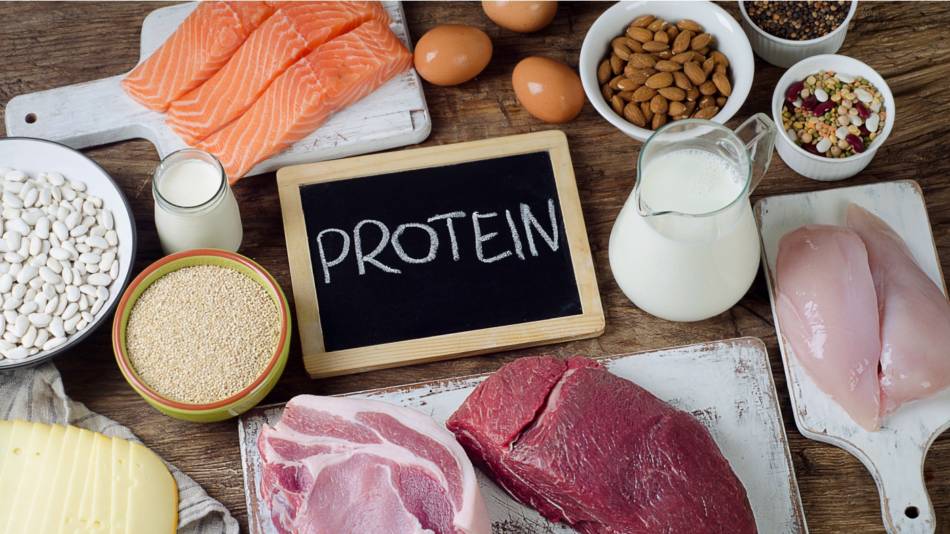
Answer:
Many foods — including ones that are plant-based — are good sources of protein, although not all are good sources of complete protein. A complete protein (also sometimes referred to as "high-quality") refers to one that contains all nine essential amino acids (i.e., those that can't be produced by the body) in proportions needed by the human body and in a form that is readily digestible and can be absorbed (Hertzler, Nutrients 2020).
As discussed in detail in our full article, all animal proteins are complete but consuming more meat-based foods may not be the best way to go.
Pros and cons of animal proteins
All dietary animal protein sources are complete proteins. This includes meat, fish, poultry, eggs, and milk (Day, Trends Food Sci Technol 2022). However, some animal proteins may be more healthful than others. For example, fish meat is one of the most healthful sources of animal-based protein because there is typically less saturated fat in fish than in other meats such as red meat. Greek yogurt can also be a good food source of protein, although it does contain somewhat less calcium than regular yogurt.
Pros and cons of plant proteins
Not all plant-based proteins are complete, but people following a vegetarian or vegan diet can still meet protein requirements by considering the following: First, plant-based proteins typically contain a lower ratio of total essential amino acids to total protein compared to animal-based proteins. This means that a person may need to eat more of a plant-based protein to obtain the same amount of essential amino acids found in animal protein (Gorissen, Amino Acids 2018). Second, not all plant-based proteins are complete and those that are may be low in one or more specific amino acid. For instance, soy and hemp protein are "complete" proteins because they contain all nine essential amino acids, although soy is low in methionine and hemp is low in leucine and lysine. Other plant-based proteins such as rice and wheat protein are not considered to be complete proteins (Gorissen, Amino Acids 2018; Marsh, Med J Aust 2013; Craig, J Am Diet Assoc 2009). Fortunately, adding a complementary plant protein that contains higher amounts of the essential amino acid that's lacking may be beneficial. See our Protein Supplements Review for details about plant-based protein combinations that could be taken together to ensure that essential amino acid requirements are met. The Protein Supplements Review also includes our Top Picks among protein powders (which includes whey and casein as well as plant-based powders).
Also see our article "Top 8 vitamins and nutrients for vegetarians and vegans" to learn about other nutrients that might be inadequate in a strict vegetarian or vegan diet.
Can you get too much of an amino acid from food?
It may be possible to get too much of certain amino acids from high-protein foods, although the risk appears to depend on the type of high protein food. Sign in as a member for details.
Join today to unlock all member benefits including full access to all CL Answers and over 1,400 reviews.
Join NowAlready a member? Sign In Here.
Join now at www.consumerlab.com/join/









Submit your comment
This feature is restricted to active members.
Join now to add comments and get all member benefits, including over 1,400 reviews.
Join NowAlready a member? Sign in here.